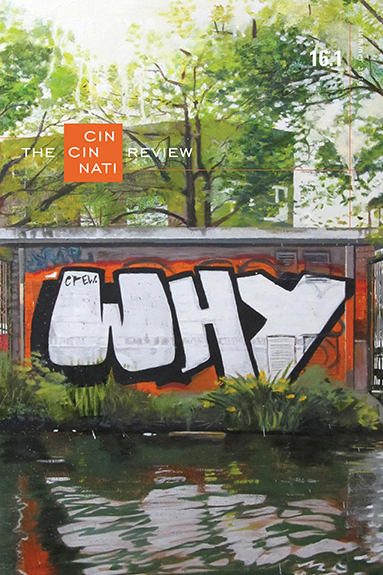Three months before my husband and I married, we moved to a house on the route of a ghost tour. It didn’t stop outside our door, but one block away was a haunted graveyard and a house that when photographed had white orbs hovering outside its upper windows. The tour guides wore long black coats and swung lanterns as they ushered groups along cobblestone streets. Spanish moss caught in the trees, like the wiry-haired beards of hundreds of old men, dripped on the heads of tourists.
I had taken the ghost tour on three occasions. Each time, the guide gave me a cheap beaded necklace, and each time, I didn’t believe in the ghosts. I thought that I was special for not believing; I didn’t understand that the guides were, above all, storytellers. Having grown up as the daughter of Christian missionaries, I was accustomed to more disturbing invisibilia: the devil’s handiwork. Ghosts—meaning the transparent embodiment of dead humans—were imaginary and harmless, but I reveled in the idea of unholy spirits. I enjoyed horror movies inspired by true events in which people became possessed by demons, and I latched onto stories where people had visions in their dreams or before they died. I sought evidence of God. The supernatural suggested transcendent existence and thus, in my desperate brain, a God. My wise and loving parents could not have spent their missionary lives in foolishness, the joyful periods of my life in which I sensed divinity could not have been false, and I could not live with the notion that upon my death I would vanish.
Living on the ghost tour’s path did not make me feel spiritually enriched. It was like being invited into a church service, only to find out that it was a movie set, the stories not real, and everyone just an actor. On the day we moved, I was in my first week of work at a psychiatric residential-treatment facility for five- to twelve-year-old survivors of abuse, which forced me into an even more tender sense of reality.
There were three stages to the facility’s hiring process: an interview with my supervisor, a four-hour shadowing experience, and a conversation with the director. We sat opposite each other at a small round wooden table in her spacious office. The ends of her graying blonde hair rested on a string of pearls. Outside the window was a recently mown lawn.
She asked about my shadowing time. “Did you get to see any of their behaviors?”
“One boy made sexual noises from his bedroom, and he was shouting ‘faggot’ a lot,” I said.
“Yes, they’re going through a bit of a sexual phase.”
I nodded.
“Are you a prayer warrior, Jillian?”
The nonprofit was founded on the belief that Christ could heal the abused. I said, “I used to pray more, but I do pray.”
“If you take this job, you will need to be a prayer warrior for yourself, and you will need other people to pray for you too.”
It had been years since I’d had a boss who spoke about prayer, but I was unfazed. My parents had had their own prayer team while they were missionaries, and as a missionary intern for a summer in the Czech Republic, I was encouraged to create such a team myself. I had a wonderful time in Prague, but I was frustrated by my lack of visible faith. That summer, I finally realized that acquiring faith was not like getting your period: Faith did not appear one day and change your life forever. It was a choice and a practice, and I had never been good at practicing.
“We deal with some serious spiritual warfare,” she said, her voice soft and low. “The devil is here. Once you start working, you will see him. We fight him every day.”
I knew this approach. Every time humans considered sinning, they were encountering the devil. Every time our hearts hardened toward God or grew bitter, that was the devil’s work. Not only was I used to such rhetoric, but the idea of seeing the devil—metaphorically or not—perched me on the edge of exhilaration, as if I were watching the opening credits of a scary movie.
“Well, I can formally offer you this job if you’d like to accept,” she said, smiling.
“I would love that,” I said.
It was a full-time job with decent pay and guaranteed play with children. We shook hands. It’s strange to think that two months later, after all the children were gone, my fiancé would stand on the lawn and look into her office on the second floor, and she would turn off her light, faking absence. My fiancé would think she was a coward. I would think that she was in mourning. “It doesn’t matter,” I’d say, curled behind him. “Let’s leave.”
. . .
For more of this essay or other great literary nonfiction in issue 16.1, order now in our online store. Digital copies are only $5!










